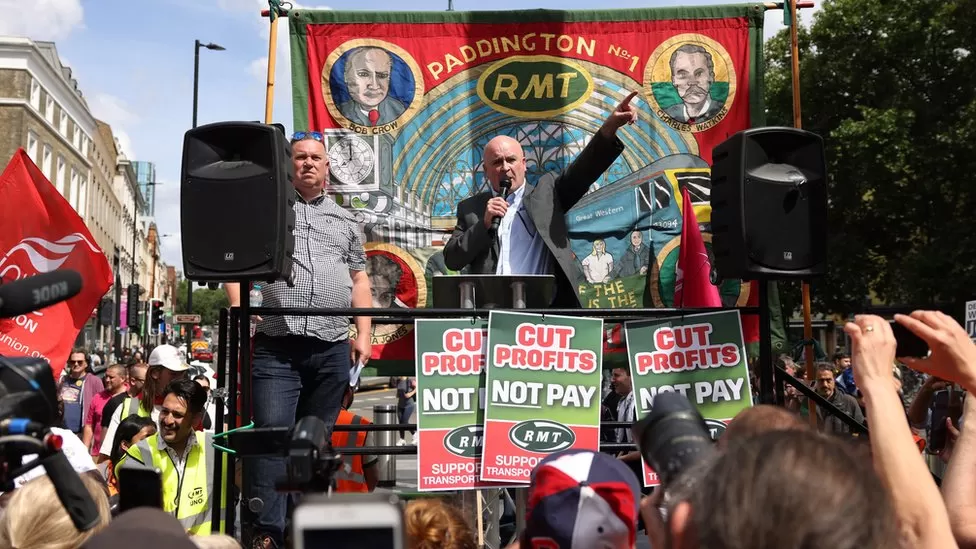
The surprise development will raise hopes of a breakthrough in the long-running dispute between rail workers and the rail industry, which had appeared deadlocked.
RMT members at Network Rail will have a referendum on the updated offer.
But as things stand, workers at 14 train operating companies will still strike on 16 March.
However with workers at Network Rail – which manages the UK’s rail infrastructure – no longer joining them, disruption will not be on the same scale and is likely to vary by operator.
An RMT spokesperson said it would give further updates on the national rail dispute “in the coming days.”
Network Rail chief executive Andrew Haines said he was “relieved” action had been suspended.
RMT members who work for train companies – including train guards – are currently set to continue action, with strikes set for 18 and 30 March and 1 April as well as next Thursday.
The Department of Transport urged the RMT’s leaders to allow members who work at train companies to vote on the final offer.
Last month the RMT rejected what the industry and government described as “best and final” offers.
One was from Network Rail and the other from the Rail Delivery Group (RDG), representing 14 train companies employing guards and station staff.
The employers had previously offered pay rises of 5% for 2022/23 and 4% for 2023/4, in exchange for changes to working practices, which the smaller rail union the TSSA has accepted.
It is understood that no new money has been put on the table by the government as part of the revised offer, but some changes have been made to the pay element of the proposals which were rejected last month.
The RDG has now invited the RMT to hold urgent talks.
“The RMT leadership’s decision to put Network Rail’s deal to its membership is a welcome development, but train operating staff will rightly be asking why their union continues to deny them the opportunity to have their say on our equivalent offer,” the RDG said in a statement.
The RMT has previously said it is “focused on coming to a negotiated settlement” and it had carried out an “in-depth consultation” before the decision to reject the pay offer was made.
The industry and government have said all along that any pay increase must come with changes to working practices.
Now, the RMT has said it is seeking an unconditional pay offer, among other requests.
Strikes have been taking place across the country’s railways since June last year.
Unions have argued any pay offer should reflect the rising cost of living – currently above 10%.
But the rail industry is under pressure to save money, after the pandemic left a hole in its finances. Bosses say reforms need to be agreed, to afford pay increases and modernise the railway.
During industrial action skeleton services have run on some lines with passengers often warned to avoid travelling where possible in case of disruption.






